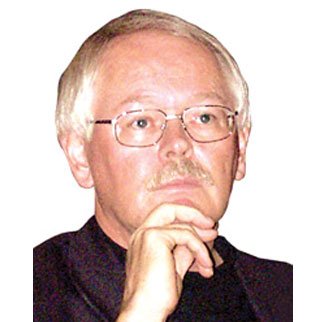
Fr. Ron Rolheiser
Ronald Rolheiser, a Roman Catholic priest and member of the Missionary Oblates of Mary Immaculate, is president of the Oblate School of Theology in San Antonio, Texas.
He is a community-builder, lecturer and writer. His books are popular throughout the English-speaking world and his weekly column is carried by more than seventy newspapers worldwide.
Fr. Rolheiser can be reached at his website, www.ronrolheiser.com.
The hiddenness of God and the darkness of faith
When I first began teaching theology, I fantasized about writing a book about the hiddenness of God. Why does God remain hidden and invisible? Why doesn’t God just show Himself plainly in a way that nobody can dispute?
Being ready for Christmas
Many of us arrive at Christmas tired, running, distracted and already fatigued with the lights, songs and celebrations of Christmas. Advent is meant to be a time of preparation for Christmas; but for many of us it is not exactly a time for the kind of preparation that enables Christ to be born more deeply in our lives. Instead our preparation for Christmas is mostly a time of making ready to celebrate with our families, friends and colleagues.
Faith, dark nights and maturity
In one of his books on contemplative prayer, Thomas Keating shares with us a line that he occasionally uses in spiritual direction. People come to him, sharing how they used to have a warm and solid sense of God in their lives but now complain that all that warmth and confidence have disappeared and they’re left struggling with belief and struggling to pray as they used to. They feel a deep sense of loss and invariably this is their question: “What’s wrong with me?” Keating’s answer: “God is wrong with you!”
Innocence, complexity and sanctity
Some years ago I officiated at a wedding. As the officiating priest, I was invited to the reception and dance that followed upon the church service. Not knowing the family well and having church services the next morning, I left right after the banquet and the toasts, just as the dancing was about to start. When I was seemingly out of earshot, I heard the bride’s father say to someone: “I’m glad that Father has gone; now we can celebrate with some rock music!”
The stigma accompanying suicide
Recently I read, in succession, three books on suicide, each written by a mother who lost one of her children to suicide. All three books are powerful, mature, not given to false sentiment and worth reading: Lois Severson, author of Healing the Wound from my Daughter’s Suicide: Grief Translated into Words, lost her daughter, Patty, to suicide; Gloria Hutchinson, who authored Damage Done, Suicide of an Only Son, lost her son, David, to suicide; and Marjorie Antus, who wrote My Daughter, Her Suicide, and God: A Memoir of Hope, lost her daughter, Mary, to suicide. Patty and David were in their mid-20s, Mary was still a teen.
Displacing ego and narcissism
The Buddhists have a little axiom that explains more about ourselves than we would like. They say that you can understand most of what’s wrong in the world and inside yourself by looking at a group photo. Invariably you will look first at how you turned out before looking at whether or not this is a good photo of the group. Basically, we assess the quality of things on the basis of how we are doing.
Torn loyalties as children of both Heaven and Earth
The world takes our breath away as we honour its author, the Lord
“Because, my God, though I lack the soul-zeal and the sublime integrity of your saints, I yet have received from you an overwhelming sympathy for all that stirs within the dark mass of matter; because I know myself to be irremediably less a child of Heaven and a son of Earth.”
Caring for our soul: the fire inside
What does it profit you if you gain the whole world but suffer the loss of your own soul?
Our overestimated grandiosity
There are now more than seven billion people on this Earth and each one of us feels that he or she is the centre of the universe. That accounts for most of the problems we have in the world, in our neighbourhoods, in our families.
So much beyond our imagination
Recently, at an academic dinner, I was sitting across the table from a nuclear scientist. At one point, I asked him this question: “Do you believe that there’s human life on other planets?” His answer surprised me: “As a scientist, no, I don’t believe there’s human life on another planet. Scientifically, the odds are strongly against it. But, as a Christian, I believe there’s human life on other planets. Why? My logic is this: Why would God choose to have only one child?”

